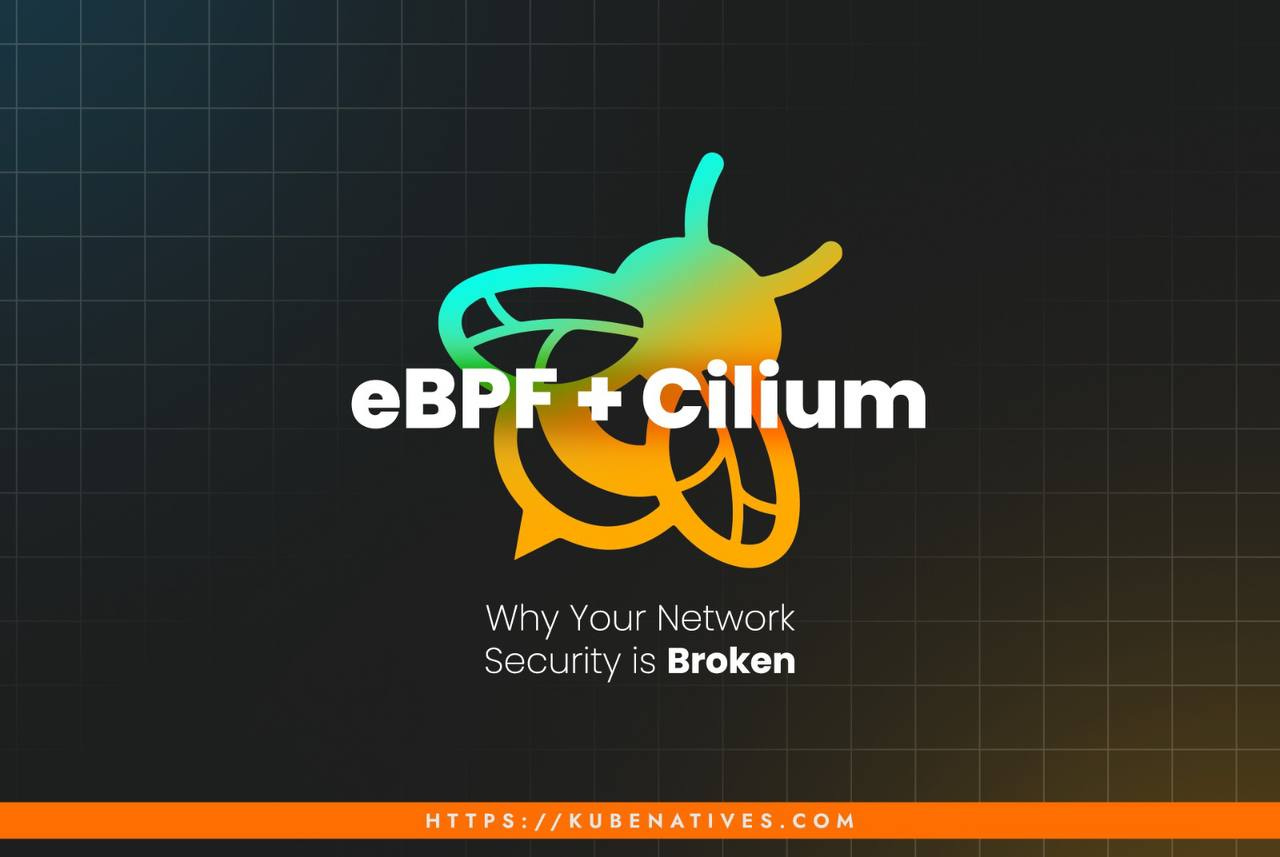eBPF + Cilium: Why Your Network Security is Broken (And How to Fix It)
Your Security is Slower Than Your Attacks
The Problem: Your Security is Slower Than Your Attacks
Your Kubernetes cluster has 500 pods. Your iptables has 15,000 rules. Each packet takes 45ms to process.
Meanwhile, an attacker just moved laterally between your microservices in 2ms.
The math is simple: slow security = no security.
Why iptables Doesn't Scale
# Check your current pain
iptables -L | wc -l
# Probably something like:
# 100 services = 2,000 rules
# 500 services = 25,000 rules
# 1000 services = cluster meltdown
The performance cliff:
More services = exponentially slower networking
Policy updates require pod restarts
No visibility into what's actually happening
Can't see application-layer attacks
Enter eBPF: Security at Kernel Speed
Think of eBPF as giving your kernel superpowers:
Instead of this (slow):
Packet → Userspace → 15,000 iptables rules → Decision
You get this (fast):
Packet → Kernel eBPF program → Instant decision
Real numbers:
iptables: 45ms per packet
eBPF: <1ms per packet
That's 45x faster
Cilium: eBPF Made Simple
Identity-Based Security
Old way (IP-based):
# Breaks when pods restart
spec:
podSelector:
matchLabels:
app: backend
ingress:
- from:
- podSelector:
matchLabels:
app: frontend
New way (Identity-based):
# Works regardless of IP changes
apiVersion: "cilium.io/v2"
kind: CiliumNetworkPolicy
metadata:
name: secure-api
spec:
endpointSelector:
matchLabels:
app: backend
ingress:
- fromEndpoints:
- matchLabels:
app: frontend
security.level: trusted
toPorts:
- ports:
- port: "8080"
rules:
http:
- method: "GET"
path: "/api/users/*"
Key difference: Cilium sees WHO is making the request, not just WHERE it's coming from.
Live Policy Updates (No Restarts!)
Traditional approach:
kubectl apply -f new-policy.yaml
kubectl rollout restart deployment/app # Downtime!
# Wait 5 minutes...
# Debug broken connections...
Cilium approach:
kubectl apply -f cilium-policy.yaml
# Done. Zero downtime. Policy active immediately.
Debugging with Hubble
Traditional debugging:
tcpdump -i any port 8080
# Stare at 10,000 packets
# Give up and restart everything
Hubble debugging:
hubble observe --follow
# See exactly what's happening:
frontend-pod → backend-pod http-request ALLOWED (GET /api/users)
malicious-pod → database-pod tcp-connect DENIED (Policy violation)
You can literally watch attacks being blocked in real-time.
Performance That Actually Matters
Getting Started This Week
1. Install Cilium (10 minutes)
helm repo add cilium https://helm.cilium.io/
helm install cilium cilium/cilium \
--set kubeProxyReplacement=strict \
--set hubble.relay.enabled=true
2. Create Your First Policy (5 minutes)
apiVersion: "cilium.io/v2"
kind: CiliumNetworkPolicy
metadata:
name: deny-all-default
spec:
endpointSelector: {}
# No rules = deny everything by default
3. Watch It Work (1 minute)
hubble observe --follow
# Make a request and watch it get blocked
The Simple Truth
eBPF + Cilium gives you:
Faster networking
Better security
Zero-downtime policy updates
Real-time attack visibility
Traditional iptables gives you:
Slower performance with more services
Blind spots in security
Downtime for policy changes
No idea what's actually happening
Your Action Plan
Today: Check how many iptables rules you have This week: Set up Cilium in a test cluster
Next month: Plan your production migration
The longer you wait, the slower and less secure your cluster becomes.



